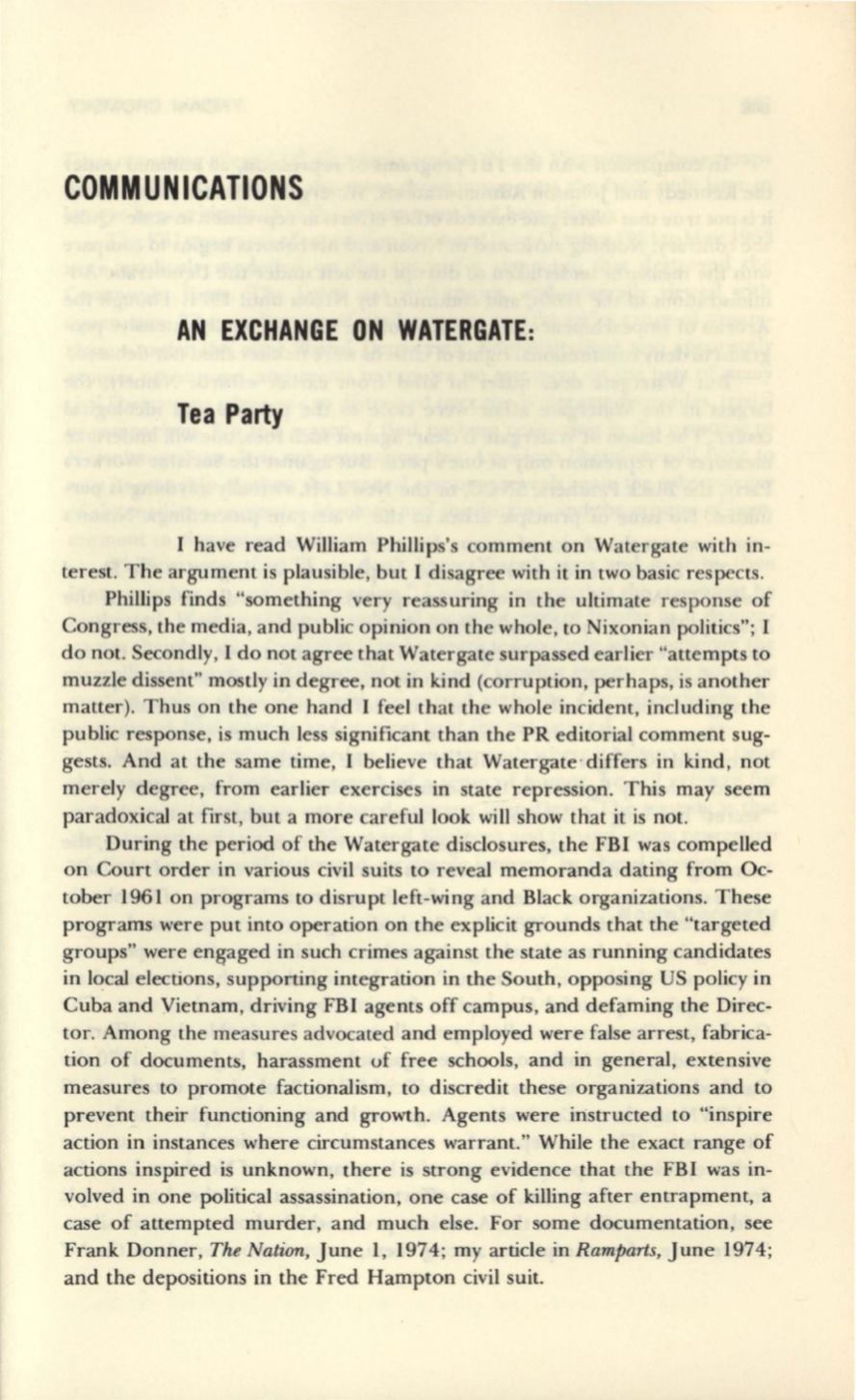
COMMUNICATIONS
AN EXCHANGE ON WATERGATE:
Tea Party
I have read William Phillips's comment on Watergate with in–
terest. The argument is plausible, but I disagree with it in two basic respects.
Phillips finds "something very reassuring in the ultimate response of
Congress, the media, and public opinion on the whole,
to
Nixonian politics"; I
do not. Secondly, I do not agree that Watergate surpassed earlier "attempts to
muzzle dissent" mostly in degree, not in kind (corruption, perhaps, is another
matter). Thus on the one hand I feel that the whole incident, including the
public response, is much less significant than the PR editorial comment sug–
gests. And at the same time, I believe that Watergate ·differs in kind, not
merely degree, from earlier exercises in state repression. This may seem
paradoxical at first, but a more careful look will show that it is not.
During the period of the Watergate disclosures, the FBI was compelled
on Court order in various civil suits to reveal memoranda dating from Oc–
tober 1961 on programs to disrupt left-wing and Black organizations. These
programs were put into operation on the explicit grounds that the "targeted
groups" were engaged in such crimes against the state as running candidates
in local elections, supporting integration in the South, opposing US policy in
Cuba and Vietnam, driving FBI agents off campus, and defaming the Direc–
tor. Among the measures advocated and employed were false arrest, fabrica–
tion of documents, harassment uf free schools, and in general, extensive
measures to promote factionalism, to discredit these organizations and to
prevent their functioning and growth. Agents were instructed to "inspire
action in instances where circumstances warrant." While the exact range of
actions inspired is unknown, there is strong evidence that the FBI was in–
volved in one political assassination, one case of killing after entrapment, a
case of attempted murder, and much else. For some documentation, see
Frank Donner,
The Nation,
June 1, 1974; my article in
Ramparts,
June 1974;
and the depositions in the Fred Hampton civil suit.


